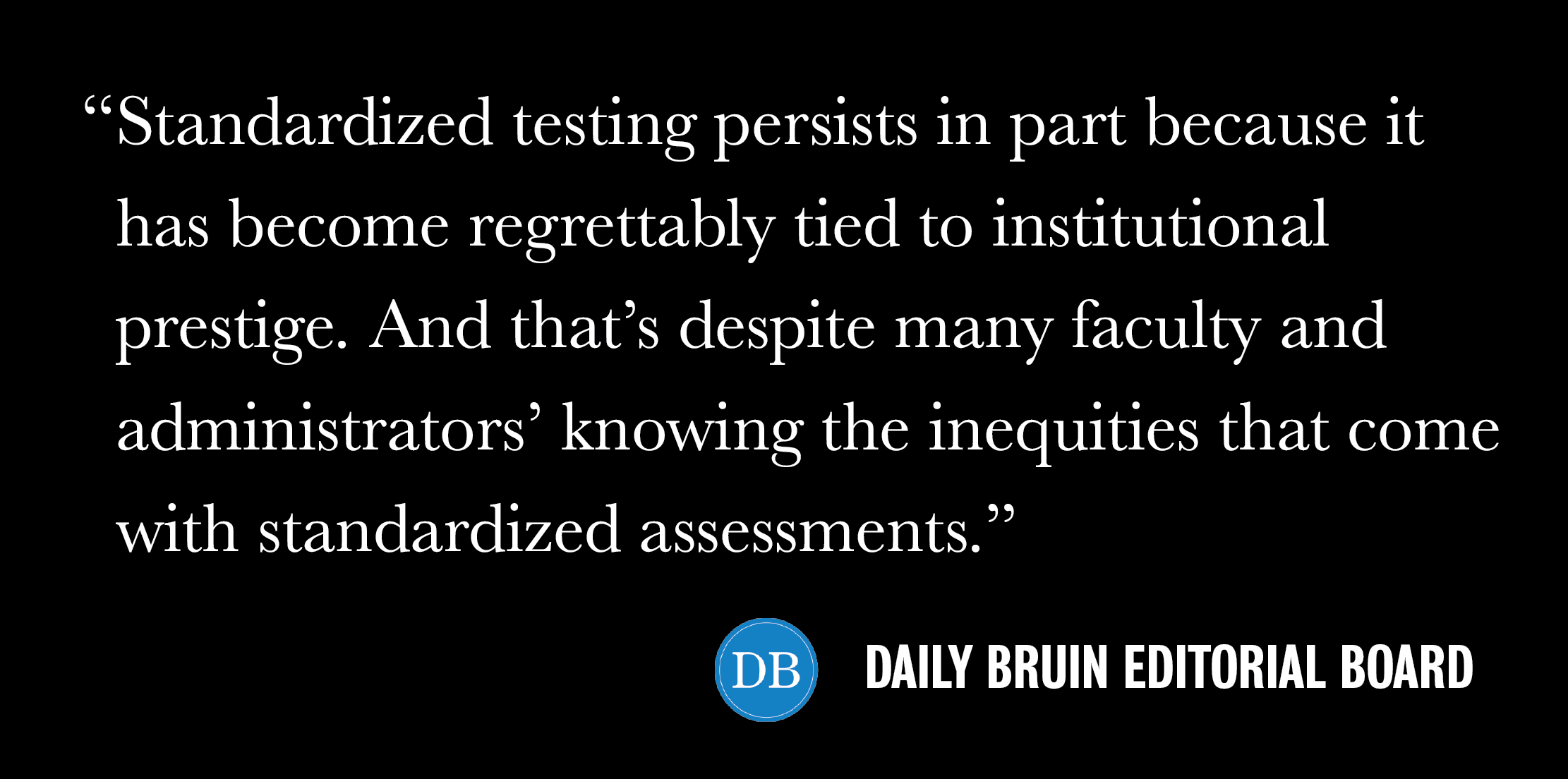Editorial: AAC’s petition to discount SAT, ACT important, but method questionable

By Editorial Board
March 7, 2018 10:37 p.m.
New SAT, same old problems.
While the so-called college readiness exam is a thing of the past for college students, the Undergraduate Students Association Council’s Academic Affairs Commission has brought it back to the fore. The AAC began distributing a petition this week to remove the use of standardized tests like the SAT and the ACT as admissions criteria for getting into UCLA.
The AAC’s current plan of attack, however, is a head-scratcher.
Admissions criteria are determined by largely institutional and bureaucratic processes. Standardized examinations are certainly flawed – the inequity of the testing process has been demonstrated numerous times – and the AAC has the right idea in urging the university to abandon the need for these exams altogether.
However, the office needs an actual plan – one that doesn’t involve internet petitions – to achieve the “dismantling” it wants. The elimination of the standardized test is an outcome that has eluded students and administrators for decades, and the AAC will need more than fiery words on a Google Form to convince administrators to drop the exams.
It’s not that student voices don’t matter – they do. But the evidence that the SAT is a no-good criterion for admissions is overwhelming, with decades of research to back it up, some of it conducted by the University of California itself, that it’s almost as if the office is preaching to choir.
The UC’s influence in the standardized testing industry cannot be overstated. After years of lobbying by the College Board, the nonprofit that administers the SAT, the UC introduced the test as an admissions requirement in 1968. This was in spite of the UC’s Board of Admissions and Relations with Schools’ own research that the SAT was a far poorer predictor of college performance than high school GPA. There were also concerns then, as there are now, that it would shut out disadvantaged applicants from even applying to the UC.
In 2001, then-UC President Richard Atkinson called for an end to the standardized testing requirement for admission. However, in pointedly criticizing the design of the tests rather than testing itself, he left the door open for testing agencies to reform their products. In response, the SAT added a writing section and eliminated its most criticized elements, such as the notorious analogies section, in 2005.
Should the AAC discuss this matter at the next meeting of UCLA’s Committee on Undergraduate Admissions and Relations with Schools, it needs to address what admissions criteria would replace the SAT. And the answer could very well be nothing: The UC’s comprehensive review is expansive enough that removing one of its 14 criteria might not matter, except to make the UC more accessible and better encourage more qualified applicants from disadvantaged backgrounds to apply.
The AAC could also urge UCLA to adopt the Coalition Application, which has students submit portfolios of essays, art and evidence of achievement inside and outside the classroom, rather than test scores, to a growing list of more than 100 selective public and private universities.
Of course, standardized testing persists in part because it has become regrettably tied to institutional prestige. And that’s despite many faculty and administrators knowing the inequities that come with standardized assessments.
But the UC is not immune to change, and the AAC is right in drawing attention to the inaccessibility of exams like the SAT and ACT; it’s just going about it the wrong way.


